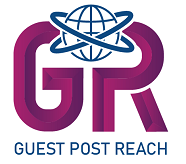Table of Contents
Understanding Spotify Playlists
How Spotify Playlists Work: Spotify playlists are collections of songs curated by users or generated by algorithms. These playlists can be tailored to specific moods, genres, or activities, making them an essential part of the Spotify experience. Users can follow, share, and collaborate on playlists, enhancing their music discovery and listening experience.Benefits of Spotify Playlists
Spotify playlists offer convenience, personalization, and a broad selection of tracks. They are perfect for discovering new music, creating themed collections for parties or workouts, and sharing musical tastes with friends. The ability to access millions of songs instantly is a significant advantage for music lovers. Spotify is a leading music streaming platform that allows you to listen to millions of songs easily. It is common to create a Spotify playlist to listen to the songs you want at once. Many people choose to do this. You may want to convert your Spotify playlist to MP3 because Spotify does not allow free users to listen to Spotify playlists offline. Downloading Spotify playlists is important when you travel to areas without Internet connection.Legal Considerations
Spotify’s Terms of Service: Before diving into the conversion process, it’s essential to understand Spotify’s terms of service. According to Spotify, downloading or converting music for offline use outside the app violates their terms. This means that while converting playlists to MP3 can be done, it’s technically against Spotify’s rules.Is it Legal to Convert Spotify Playlists to MP3?
Converting Spotify playlists to MP3 for personal use falls into a legal gray area. While it’s not explicitly illegal, it can be considered a breach of Spotify’s terms of service. However, distributing or sharing converted files is unquestionably illegal and can lead to severe consequences. The best thing about YT Saver Spotify Converter is that it can not only convert Spotify songs to MP3 format, but also download Spotify playlists in various other audio formats. Moreover, YT Saver also preserves ID3 tags and metadata information, so converting Spotify playlists to MP3 doesn’t take any additional time.Choosing the Right Tool
Free vs. Paid Tools: There are numerous tools available for converting Spotify playlists to MP3, ranging from free to paid options. Free tools can be tempting but often come with limitations such as ads, lower quality, or slower conversion speeds. Paid tools, on the other hand, usually offer better features, higher quality, and faster processing.Features to Look For
When choosing a conversion tool, consider the following features:- User-Friendliness: Easy to navigate and operate.
- Quality Output: Ability to maintain high audio quality.
- Speed: Fast conversion rates.
- Metadata Preservation: Keeps track information like artist, album, and cover art.
- Support: Reliable customer service and regular updates.
Step-by-Step Guide to Converting Spotify Playlists to MP3
Step 1: Download and Install a Converter First, download and install a reputable Spotify to MP3 converter. Make sure to choose a tool that suits your needs and has good reviews. Step 2: Copy Spotify Playlist URL Open Spotify, navigate to the playlist you want to convert, and copy its URL. This can usually be done by right-clicking on the playlist and selecting the “Copy Playlist Link” option. Step 3: Paste URL into Converter Open your chosen converter and paste the copied URL into the designated area. This step connects the converter to your Spotify playlist. Step 4: Choose Output Settings Select your preferred output settings. This includes the format (usually MP3), quality (bitrate), and destination folder for the converted files. Step 5: Start the Conversion Process Initiate the conversion process by clicking the start button. The converter will begin processing the playlist and converting the tracks to MP3 format. Once complete, you can find your MP3 files in the specified folder.Top Tools for Converting Spotify Playlists to MP3
Audacity: Audacity is a powerful, open-source audio editor that can be used to record and convert Spotify tracks to MP3. It’s free and has a wide range of features, though it requires manual setup. AllToMP3: AllToMP3 is a straightforward, free tool that supports Spotify, YouTube, SoundCloud, and Deezer. It’s user-friendly and integrates seamlessly with Spotify. NoteBurner: NoteBurner is a popular paid option known for its high-quality output and fast conversion speeds. It also preserves metadata and album art, ensuring your music library stays organized. Sidify: Sidify offers both free and paid versions, with the paid version providing better quality and faster conversions. It’s user-friendly and reliable, making it a favorite among users. TunesKit: TunesKit is another paid option known for its robust features and excellent customer support. It maintains high audio quality and supports various output formats. YT Saver: Whenever there is talk of downloading Spotify playlist to MP3, YT Saver Spotify Music Converter proves to be the best Spotify playlist to MP3 converter. This is a great music converter that can convert Spotify playlists to MP3 without losing sound quality.Features and Comparison of Top Tools
Besides downloading individual spot tracks, you can also use Spotify Downloader to convert multiple Spotify albums or playlists to audio format. Moreover, Spotify Downloader preserves all metadata information including album, artist and network. Audacity Features:- Pros: Free, versatile, and powerful.
- Cons: Steeper learning curve, manual recording.
- Pros: Free, easy to use, supports multiple platforms.
- Cons: Occasional bugs, limited features.
- Pros: High-quality output, fast conversion, metadata preservation.
- Cons: Paid tool, higher cost.
- Pros: Reliable, good quality, user-friendly.
- Cons: Paid features needed for best results.
- Pros: Excellent support, high quality, multiple formats.
- Cons: Paid tool, premium pricing.
Troubleshooting Common Issues
Conversion Errors: If you encounter errors during conversion, ensure you’re using the latest version of the software and that your internet connection is stable. Re-check the playlist URL and try again. Quality Issues: For quality issues, adjust the bitrate settings to a higher level. Ensure that the source tracks on Spotify are of good quality as well.How to convert Spotify Playlist to MP3 on Android?
On Android, you can also convert Spotify playlists to MP3 with Spotify. It has a simple interface and allows you to download music from YouTube, SoundCloud and Spotify to MP3 audio format. On Android, you can also convert Spotify playlists to MP3 with Spotify. Missing Tracks: Missing tracks can occur if a song is not available in your region or if the converter does not support certain tracks. Double-check the playlist and converter settings.Tips for Better Conversion
Ensuring High-Quality MP3s: Use a converter that allows for high bitrate settings and maintains the original quality of the tracks. Avoid free tools that compromise on audio quality. Managing Large Playlists: For large playlists, convert in batches to avoid software crashes or slowdowns. Ensure sufficient storage space on your device.How to convert Spotify Playlist to MP3 Online
Converting Spotify playlists to MP3 is also easy with online tools such as Spotify Downloader. This is a great online tool that allows you to download Spotify playlists and albums in MP3 audio format without interruption. Backup and Storage Tips: Always back up your converted files to an external drive or cloud storage. This ensures you won’t lose your music collection due to hardware failure or other issues.Maintaining Playlist Integrity
Keeping Metadata Intact: Choose a converter that preserves metadata, such as artist, album, and cover art. This keeps your music library organized and easy to navigate. Organizing Your MP3 Files: After conversion, organize your MP3 files into folders by artist or album. This makes it easier to find and enjoy your music.Alternative Methods
Using Online Services: Several online services allow you to convert Spotify playlists to MP3 without downloading software. These services can be convenient but may come with limitations like ads or lower quality. Recording Spotify Streams: Recording Spotify streams using audio recording software is another alternative. This method captures the audio as it plays, ensuring you get the exact sound quality you hear.Pros and Cons of Converting Spotify Playlists to MP3
You don’t need to try many options to convert Spotify playlist to MP3. Check out this post to explore three innovative ways to achieve your goals. From using mobile apps to choosing online tools, we recommend using desktop apps to convert Spotify playlists to MP3 audio format.Pros
- Offline listening without the Spotify app.
- Freedom to use any media player.
- Ability to create backups of your favorite playlists.
Cons
- Potential legal issues.
- Possible quality loss during conversion.
- Violation of Spotify’s terms of service.
User Experiences and Reviews
Testimonials from Users: Many users appreciate the ability to enjoy their Spotify playlists offline and share positive experiences with various conversion tools. NoteBurner and Sidify often receive praise for their reliability and quality. Common Feedback: Common feedback includes satisfaction with high-quality output, ease of use, and fast conversion times. However, some users express concerns about the legality and potential risks involved.FAQs on Spotify Playlist to MP3
- Can I Use Converted MP3s on Any Device? Yes, once converted, MP3 files can be played on any device that supports the MP3 format.
- How Long Does the Conversion Process Take? The time required depends on the size of the playlist and the tool used. Some converters offer faster processing speeds, especially paid versions.
- Are There Risks Involved? Yes, converting Spotify playlists to MP3 can violate Spotify’s terms of service and may pose legal risks. It’s important to use converted files for personal use only.
- What is the Best Quality Setting? A bitrate of 320 kbps is considered the highest quality for MP3 files, preserving the best possible sound.
- Can I Convert Multiple Playlists at Once? Some tools allow batch conversions, enabling you to convert multiple playlists simultaneously, saving time and effort.

